Looking for storage when moving house but don't know where to start? Here are 5 things you must know about storage when moving house.
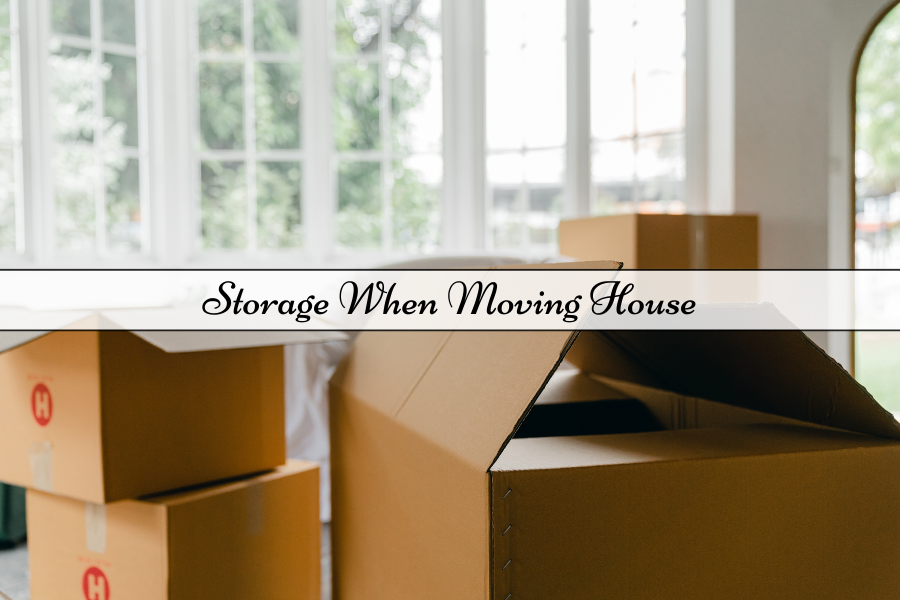
You may end up in a situation when moving house where you need to put your belongings into storage for a period of time.
Here are all the storage tips we've accumulated over the years to help you have a smooth experience. We'll cover 5 key areas:
Do you actually need storage?
Your storage requirements
Who should you store your belongings with?
Protecting your belongings in storage
What not to put in storage
This post is all about storage when moving house.
1.) Do You Actually Need Storage When Moving House?
Ask yourself why
Asking yourself why you're doing something is always a good place to start. Do you actually need to store your belongings or are you just holding onto clutter?
It's always worthwhile having a big sort out and declutter before moving (we'll have a post on this coming very soon!). You might find this eliminates a lot of the stuff you think you need to put into storage.
If you're in a situation where there will be a gap between leaving your old home and before you can move into your new home, then storing your furniture and possessions makes a lot of sense.
2.) What Are Your Requirements For Storage?
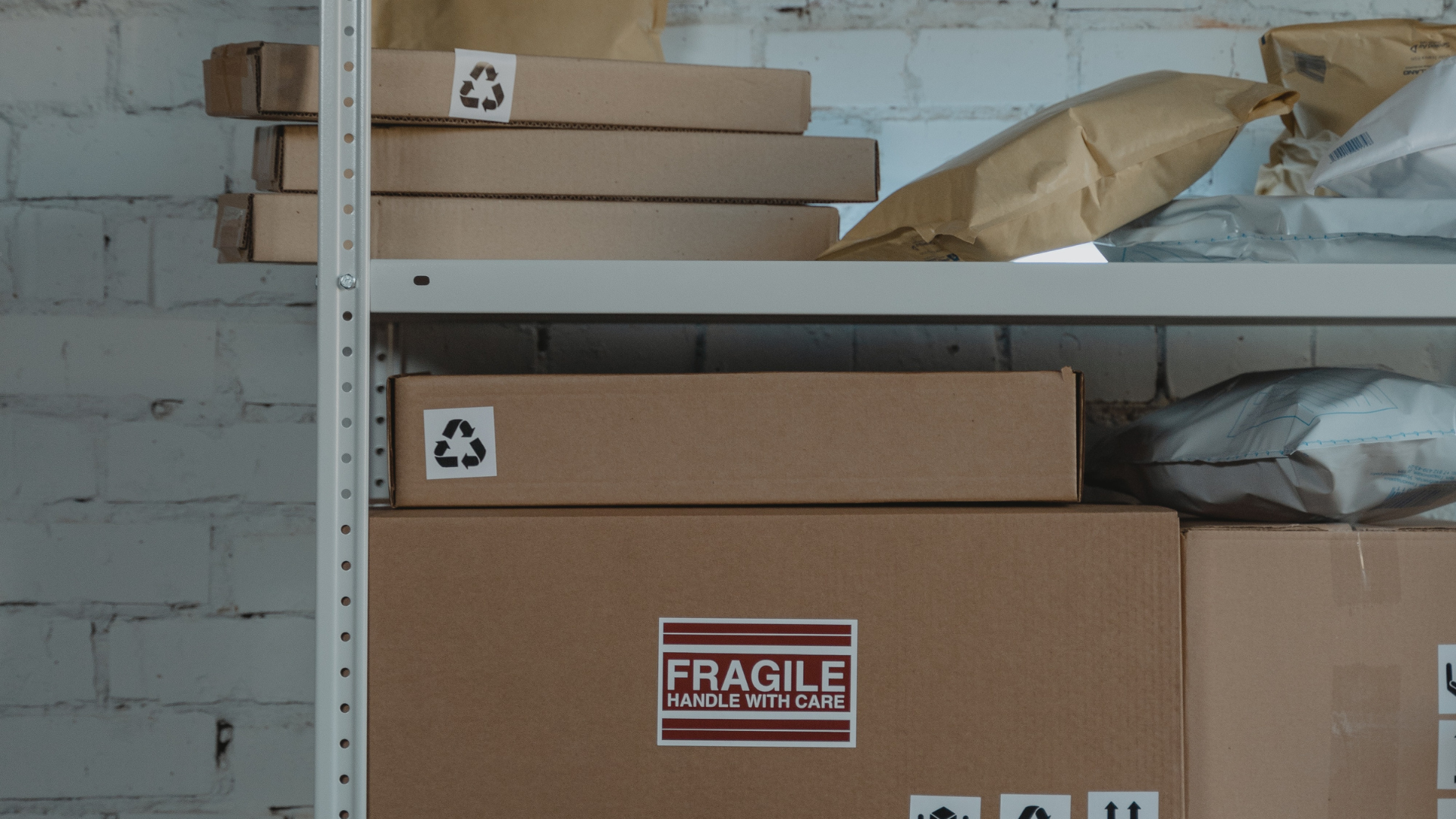
Before you go ahead and book storage, you should have a clear idea of what exactly you're looking for.
How much do you want to store?
The amount you need to store will determine the size of the space you need and ultimately the cost. You can get a sense of how much space you're likely to need by knowing:
- How many boxes you want to store
- How many loose items (i.e. chairs/sofas that aren't in a box)
Once you have this information, a storage warehouse or removals company should be able to tell you roughly how much square footage you will need based on the height of their ceilings.
However, you must make sure that your boxes are stackable. We recommend getting at least double wall storage boxes, so they don't break. If you only get 1 wall boxes, you may find that you can't stack them and would need to pay for extra space.
How long will you need storage for?
Some people store possessions for just 1 day and others for multiple years ! It's completely up to you depending on how long you need it for. Keep in mind you will pay more for a longer time period.
The important thing to remember is not to underestimate how much time you need for storage. It's always better to book a little longer if you're unsure, otherwise you could face a higher cost of having to extend the storage.
Access requirements
You should have a think about whether you'll want to access any of your belongings in storage. If so, try and pick somewhere fairly nearby and check that you're actually allowed access.
Some storage places will not allow you to access your belongings until you need them taken out for good. Others may allow you to access but will charge an access fee. You should check before you book what their access policy and opening times are.
Storage conditions
When storing your belongings, you'll want to make sure that you're doing everything you can to get good quality storage. This means:
- Avoiding damp and mouldy storage places. Your belongings can get very badly damaged in a short space of time if they are kept in damp conditions
- Avoiding pest-infested storage. Nobody wants a mouse or rat chewing through their furniture !
- Checking there is good security. Is your storage place locked? Are there passcodes? Are there any cameras? Is it supervised 24/7 ? Have there been any burglaries recently?
- Checking safety. Have there been any fires recently? Are there alarms? Do they have a list of prohibited items for storage that they require people to follow?
3.)Who Should You Use For Storage When Moving House?
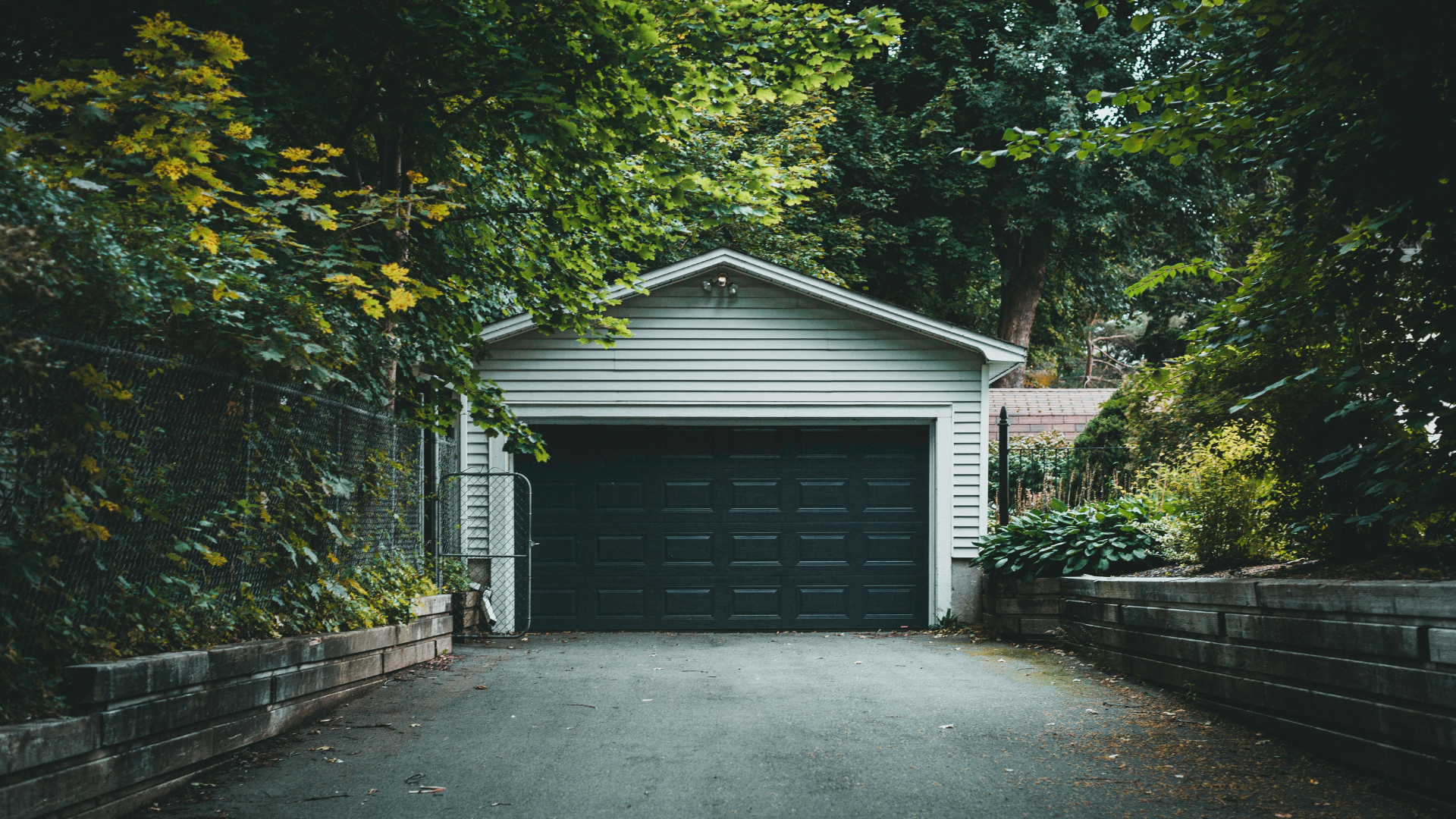
You have a few options when it comes to storing your belongings. The option you go for should depend on the specific requirements that you need.
Option 1: Family, friends or neighbours
If you're on good terms with your family, friends or neighbours, the cheapest and easiest way might be to ask them. This will of course depend on the amount of items you want to store and for how long.
If they agree, you should check if they're storing your possessions in their property or the garage. If it's the garage, make sure there are no pests and that it's dry.
You will also need to be aware of the insurance situation to avoid any awkward situations further down the line.
Will your items be insured if they are being stored with family, friends, and neighbours? What happens if there is a burglary, water damage or a fire? Who is going to be responsible to replace your possessions?
The easiest option would be for your friend to put your belongings on their insurance and you pay any extra charge for doing this.
Option 2: Removals company
Some removal companies may offer a storage service, which can work out cheaper than storage at a 24/7 accessible warehouse.
Storage with a removals company can be done in a couple of ways:
1.) The removal company may own a warehouse and can store your goods for a few days, weeks or months. You might be able to access your items during this time, although for each access there may be a fee.
2.) The removal company may store your boxes in wooden crates and deliver to a third party’s warehouse where you will have no access at all. You will not see your belongings until they are removed and the removal company delivers them to your property.
Option 3: Storage Warehouse
This can be quite expensive and the prices will vary depending on the size of room you hire, the duration and where the warehouse is. As with most things, the town or city will be more expensive than the countryside.
A top tip is that you can actually negotiate the prices (it's always worth a try!), especially if you are hiring for a long period of time. However, not everywhere will offer a discount.
The rates may also vary depending on whether you need access to the warehouse after working hours. You might face a higher cost for going at night.
Other things to keep in mind:
- It is always worth going to visit the storage warehouse if you can to make sure it meets your needs and has good conditions
- You will need to provide a detailed inventory of what you're putting into storage
- You will have to sign a contract detailing the terms of storage i.e. for how long, costs etc
- You will be given a number for your storage unit and will usually need to purchase a padlock for your room/storage container
- You can move items to your storage container yourself bit by bit once you have access, or a removal company can do it in one go
- Tell the storage company if you're using a removal company. Pencil in the date for bringing the items so there is room for the removal lorry to unload
- You will usually have to give at least one week's notice to remove your items, but you should always check the terms and conditions carefully to double check
4.) Protecting Your Belongings In Storage
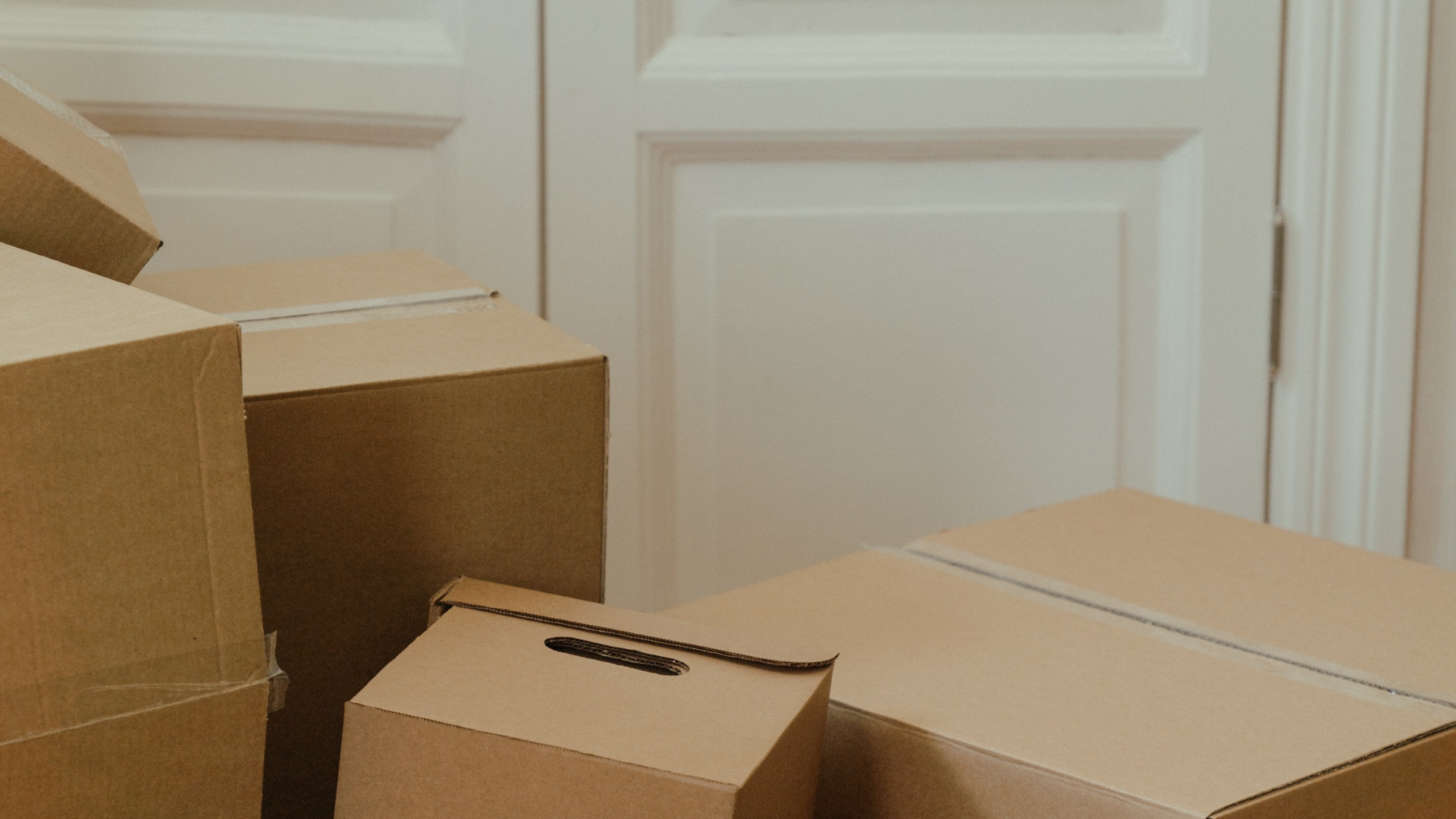
Insurance
We highly recommend getting insurance for your stored possessions. You'll be very glad you did should something go wrong.
You can check if your own home insurance will cover you for this. If you're using a removal company's storage or a storage warehouse, you may also be given the option to use their insurance. However, we recommend always using your own insurance if you can, as this can work out cheaper.
Get your documentation in order
Regardless of which storage option you go for, it is definitely worth having your own inventory before storing your belongings.
You should know exactly what items and how much stuff you're putting into storage. Your inventory should include:
- The number of boxes to be stored
- A list of all the items in each box, so you know exactly what possessions are in each box
- A list of all the loose items that you have i.e. chair (something which is not packed up in a box)
- List of fragile items that need special care (and you should communicate this to both the storage and insurance company!)
The storage company will usually require a detailed inventory, which lists all the items and the rough cost of each item. This can take time to prepare correctly, so make sure you start early.
Take photos
Take pictures of everything you're putting into storage. We recommend taking pictures of items:
- Before they are boxed up
- When they are in the box before the box is sealed (i.e. photo of how everything is arranged in each box)
- If possible, when they have been put into storage (i.e. picture of how the boxes/loose items look in the garage or your storage warehouse)
Taking pictures at these different stages will allow you to clearly evidence that your items weren't already damaged before they went into storage.
You will also be able to tell if somebody has been through your possessions if the boxes look rearranged, or certain items are missing from each box.
5.) What should you NOT put in storage?
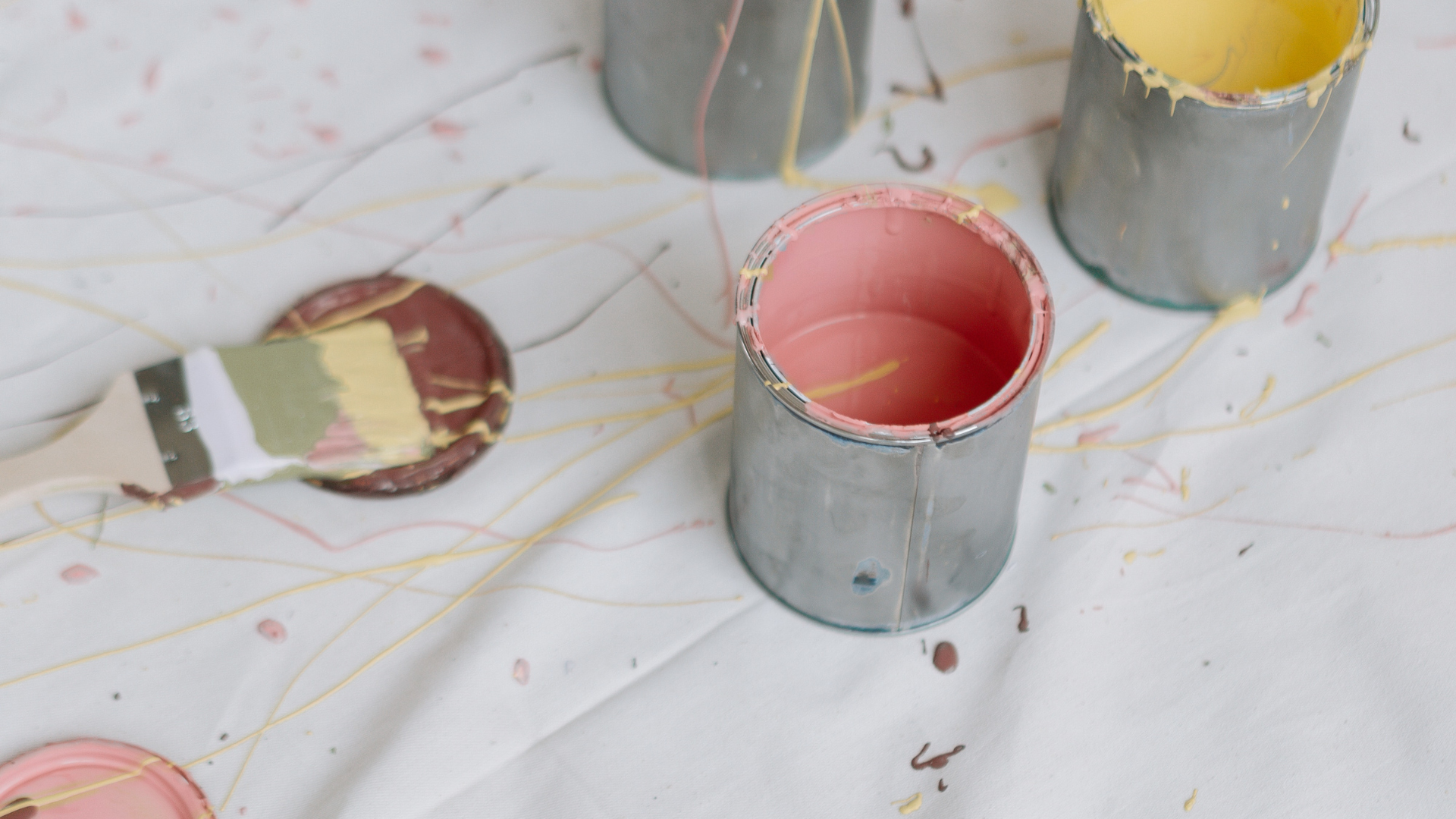
There will be certain items that you will not be allowed to put in storage. These include flammable items (i.e. petrol, paint), chemicals or anything toxic, and perishable items (i.e food).
The storage provider should have a list of what can and cannot be safely stored, so make sure you read this carefully.
You also want to avoid putting any important documentation or valuables in storage. Only put stuff in storage that you can live without should something go wrong.
Key Takeaways
So to wrap up...Things to remember about storage when moving house are:
- Ask yourself if you really need storage or if you're just holding onto clutter
- Know how much you want to store
- Make sure your boxes are stackable
- Know how long you will need storage for
- Check how often you can access your belongings in storage
- Avoid damp and mouldy storage places
- Avoid pest-infested storage places
- Check and ask about security and safety in the building
- Consider if you can store your belongings with friends, family or neighbours
- You may wish to store with your removals company if it's convenient
- If you choose a storage warehouse, make sure it meets your requirements
- Try negotiating the prices down. You have nothing to lose from asking !
- Get insurance for your belongings in storage for the full length of time
- Keep your own detailed inventory of what you're putting into storage
- Take photos of your items before they are boxed up, when they're in the box and after they've gone into storage (if possible)
- Do not put any prohibited items in storage
- Do not put any valuables or important documentation in storage
This post was all about storage when moving house.
If you found this helpful, you can view our upcoming content on our coming soon page to see what's next !

Comments